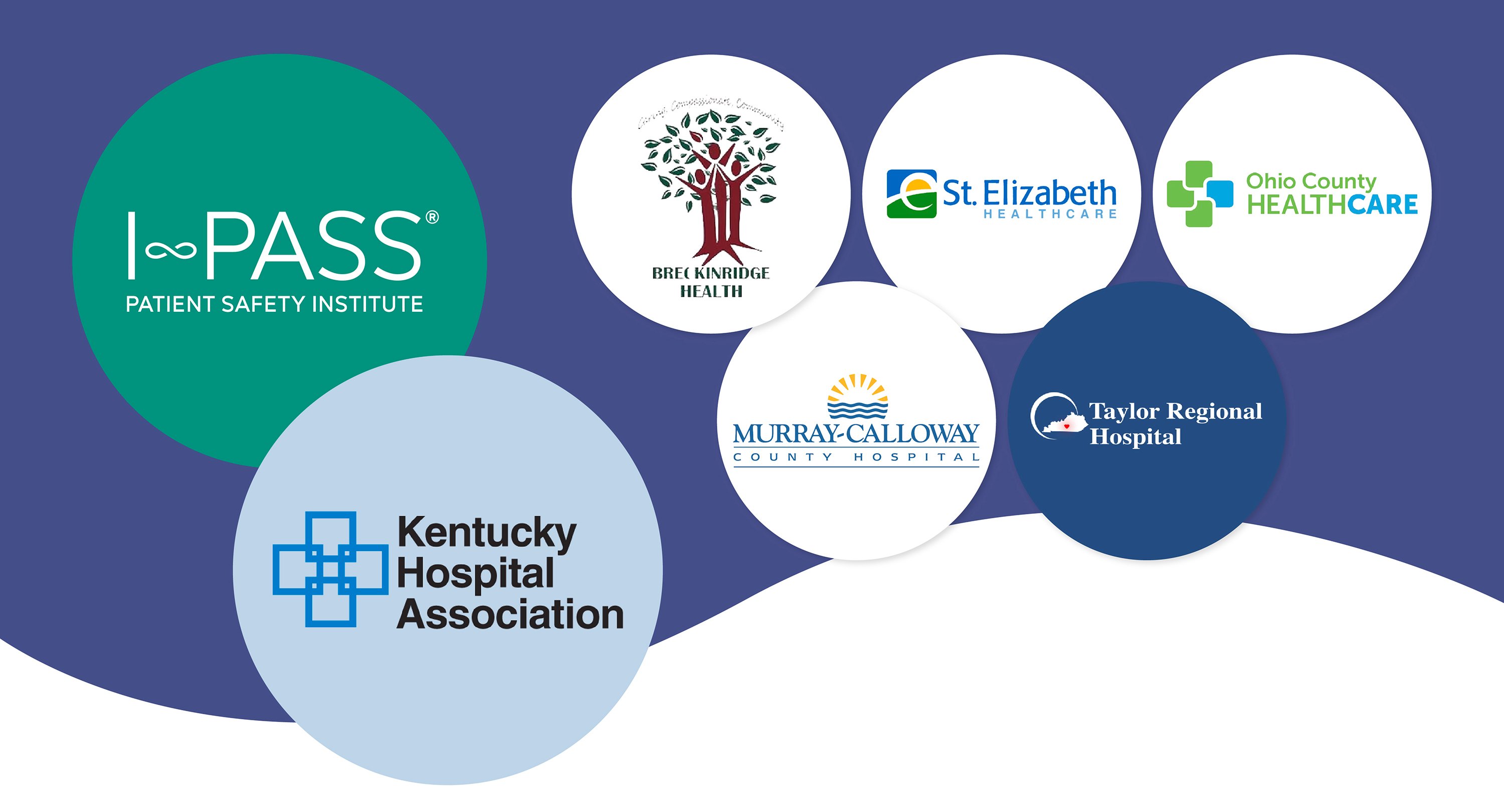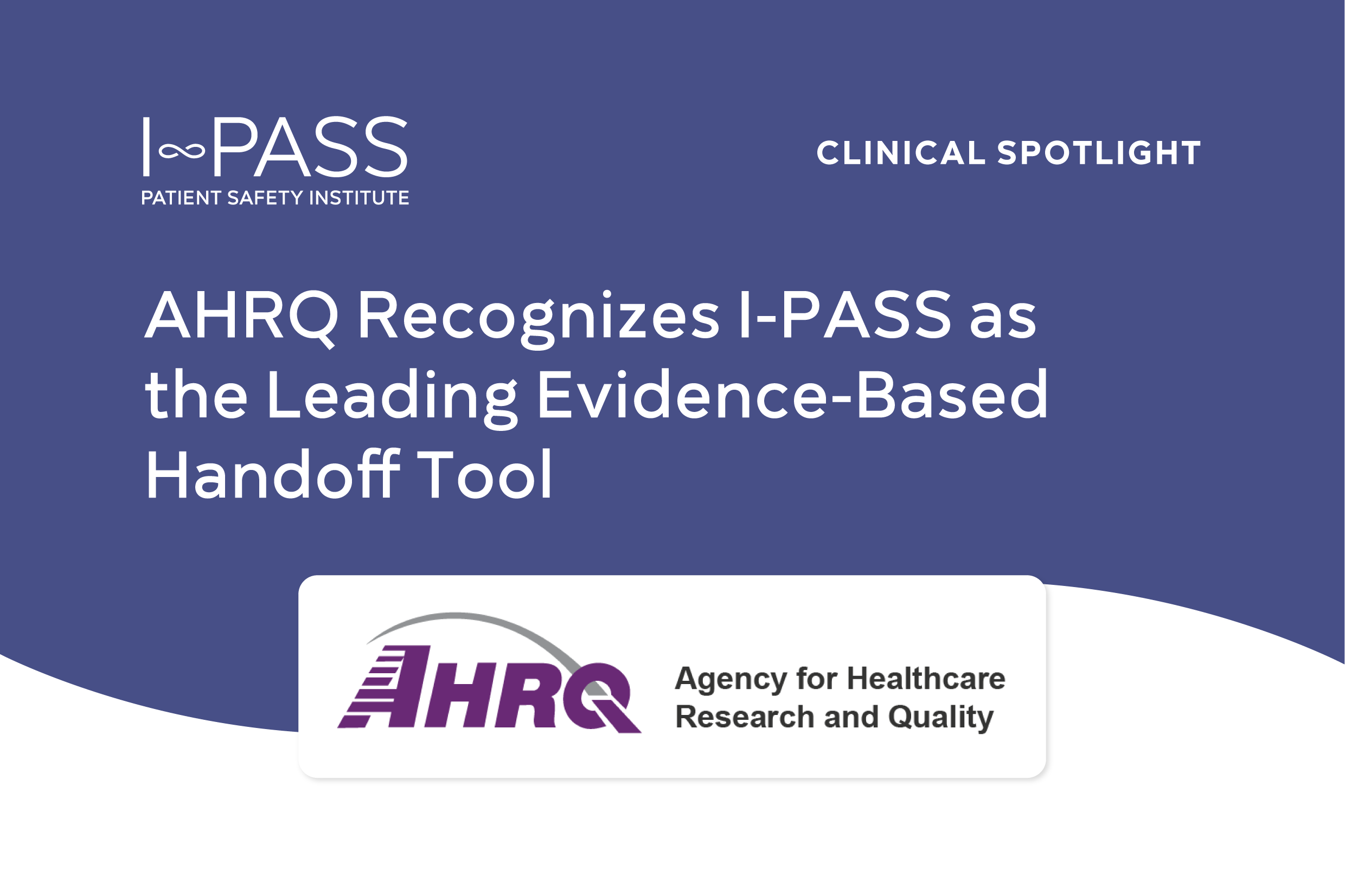New evidence from research published in the Journal of Hospital Medicine reveals dramatic reduction in handoff-related harm events through implementation of the I-PASS handoff methodology in the largest and most diverse clinical study of the program to date.
It’s long-established that handoff-related communication failures are a leading cause of medical errors. Reductions in work hours have resulted in more frequent handoffs and increasing patient complexity has heightened handoff risks across clinical specialties. Despite these significant vulnerabilities, handoffs are a frequently underrepresented target for patient safety improvements.Since 2010, multiple clinical studies have validated the effectiveness and value of I-PASS as a structured patient handoff program in pediatric clinical settings, setting it apart as the industry’s gold standard for effective handoff communication. In an initial study, nine pediatric residency programs decreased preventable adverse events by 30% after implementing the I-PASS handoff program. This week, new research published in the Journal of Hospital Medicine revealed the capacity for I-PASS to strike a critical balance between standardization and customization, enabling dramatic improvements in patient safety across diverse clinical environments. The following review summarizes the study, "Implementation of the I‐PASS handoff program in diverse clinical environments: A multicenter prospective effectiveness implementation study".
Snapshot of the Study Methods
- Type 2 Hybrid effectiveness-implementation study of a comprehensive I-PASS handoff communication program
- 32 hospitals (12 community, 20 academic)
- Two successive 17-month-long implementation and data collection periods (16 hospitals each)
- 2,735 resident physicians and 760 faculty champions
- Outcomes assessed via systematic surveys of adverse event frequency and validated handoff observation tools
Key Takeaways
- The study demonstrated that the I-PASS program is both effective and adaptable in decreasing adverse events across a wide set of provider types and care settings.
- The I-PASS program balances standardization with customization, offering structured, adoptable handoff methodology paired with the flexibility to collect the appropriate patient information that each clinician needs to deliver the best possible care.
New Discoveries in Diverse Clinical Environments
Since I-PASS developed its evidence-based handoff solutions, this is the first study to assess implementation across a large number of hospitals including multiple specialties of pediatric and adult care. By expanding the evaluation to adult settings and providers, this novel research substantiates a more comprehensive representation of the I-PASS methodology. The research presents the following key findings.
Increased Adherence to Structured Handoff Approach
Across all 32 sites, implementation of the I‐PASS handoff program was associated with a marked improvement in the percentage of handoffs that usually or always included all five key handoff data elements. From baseline to postintervention, there was a 231% increase in the inclusion of all data elements for verbal handoff communications. Similarly, for written handoffs, the inclusion of data elements increased by over 600%.
Improved Quality of Handoff Communication
It’s clear that I-PASS helps raise the standard for handoff communication in hospitals. In this study, there were significant improvements in the quality of verbal and written communication. From baseline to postintervention, there was an increase of handoffs that included “very good or excellent” summaries including verbal and written patient summaries and contingency plans.
Significant Reduction in Adverse Events
Perhaps most importantly and consistent with previous studies, the Journal of Hospital Medicine study found that the implementation of I-PASS was associated with a significant reduction in handoff-related adverse events. Across all sites combined, there was a 47.1% reduction in the frequency of reported major adverse events and a 46.9% reduction in minor harm events.
Overall, the study magnifies the effectiveness and adaptability of the I-PASS handoff program. The findings demonstrate that I-PASS can be successfully implemented in diverse specialties and hospitals, it significantly improves handoff communications, and it could potentially promote widespread improvements in patient safety. Also, various provider types were able to achieve high-quality handoffs using I-PASS.
Turning Results into Actions: Advancing Patient Safety
After considering the results, the research team concluded that these findings support the ongoing focus of the Accreditation Council for Graduate Medical Education (ACGME) and the Joint Commission on handoff communication. Additionally, new studies consistently provide evidence that underlines the importance of high-quality, multifaceted handoff programs.
Now, the research team is calling on the healthcare industry to respond to the data and implement changes to further advance patient safety through the evolution of policies that prioritize handoff communication and incentivize the adoption of high-quality handoff programs.
To read the full study in the Journal of Hospital Medicine, click here.

.png)



